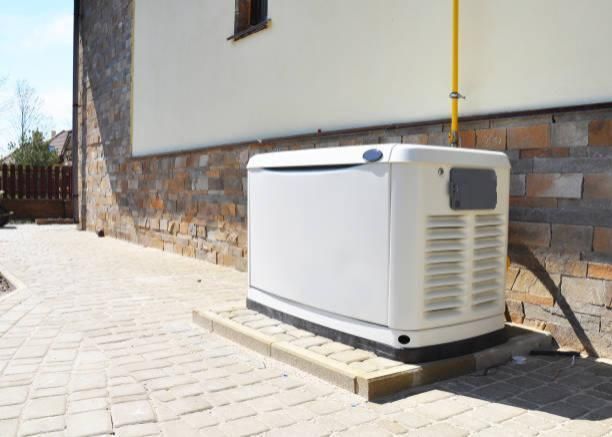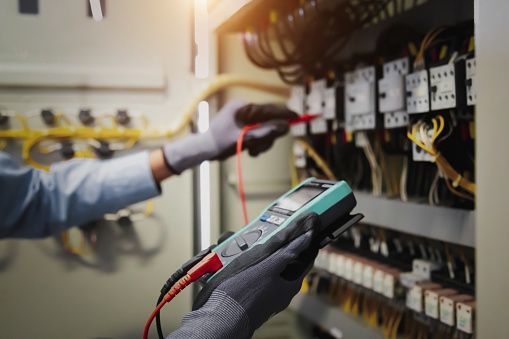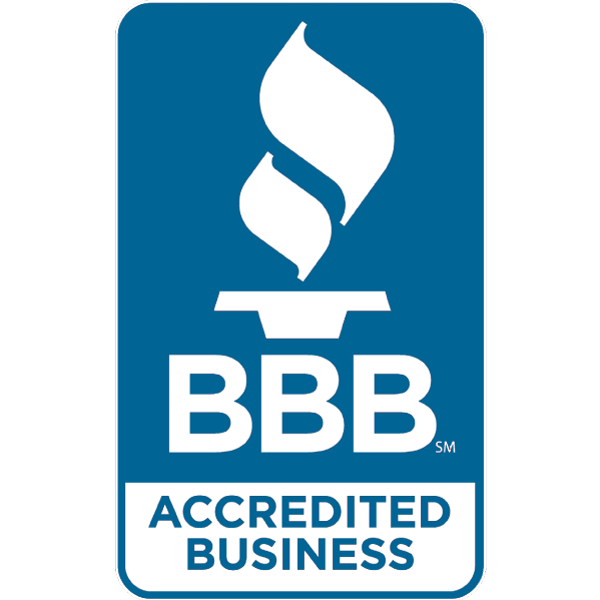Electrical Safety During Storm Season: Power Surge & More
How To Prepare Your Home For Storm Season
As storm season approaches, ensuring your home is well-prepared to withstand potential damage caused by severe weather conditions is crucial. Flash floods, strong winds, and hail can cause significant property damage and endanger your family’s safety. This season, try to minimize the impact of storms on your home. Taking proactive measures to prepare your home’s electrical system for storm season from things like flooding, a down power line, or a power surge is essential.
Electrical Safety For Storm Season
Electrical and personal safety during storms is essential; remember the danger posed by power surges and electrical
hazards during storm season. We all know that overhead power lines and falling trees can cause significant damage to your home and yourself, so it’s important to protect your vehicles and bring in any outdoor furniture during severe weather. It’s equally important to protect your electronics and large
appliances from storm surges and water damage.
Prepare For A Power Surge
Typically, both ungrounded and properly grounded power outlets provide 120-volt AC power. However, the power flow can actually vary between 0 and 169 volts, and any amount exceeding 169 volts classifies as a power surge. Such surges may arise from different occurrences, including power grid switching and lightning strikes during thunderstorms, resulting in a sudden and excessive influx of electrical energy that can damage your appliances and electrical devices.
What Damage Can A Power Surge Cause?
Can a power surge damage an outlet ? Yes, power surges can cause damage to both devices and your home’s electrical system. The arc of electrical power can generate heat, damaging your electrical outlets and damaging your appliances. These electrical arcs can also fry your home’s circuit breaker , creating extensive and expensive damage that prolongs your power outage.
While significant power surges like those induced by direct lightning strikes can cause instant and permanent damage causing your appliances or electronics to stop working. Minor power surges, like the ones that happen when your air conditioner cycles on, can cause small but accumulating damage over time. Such surges can cause electronic rust, shortening the functional lifespan of any device by several years.
It is crucial to protect your devices and electrical system from power surges and to make sure your home’s wiring is up to code. This avoids costly damage to your appliances and enhances electrical safety, safeguards your electrical system, and ensures everything operates smoothly during storm season.
How To Prevent Power Surges
Unfortunately, you cannot prevent power surges. However, you can take measures to protect your home appliances and electronics. One effective strategy is to install surge protectors (also known as surge suppressors) in various locations throughout your home. Additionally, protective power strips are available. It’s worth noting that not all power strips are surge protectors. When shopping for surge protection , you’ll need to check the packaging for an energy rating in Joules. If no rating is present, the power strip most likely doesn’t have surge protection.
Another great way to protect your home from electrical hazards during storm season is to have an electrician install GFCI (ground fault circuit interrupter) outlets. These outlets shut off power automatically when detecting a ground fault, which protects against electrical shock and provides a higher level of electrical safety. Call Mister Sparky Electrician Tulsa for a GFCI install.
Prepare For Power Outages & Blackouts
It’s essential to have some items readily available to prepare for power outages and blackouts. These may include candles or lanterns, flashlights, a portable radio, a portable charger, non-perishable food and water, a first aid kit, warm clothing, and blankets. These items can help you stay informed, safe, and comfortable during a power outage.
Install A Generator
When living in an area prone to severe storm seasons, installing a generator in your home is a good idea. But it’s best to have the generator installed by a licensed electrician , like the pros at Mister Sparky Electrician Jenks before the storm season arrives. Our electricians can install a safety switch that lets you switch between the generator and your primary electrical system. This safety switch ensures that the generator is connected safely and that you can use it as needed during a power outage. By having a generator , you can avoid inconveniences and stay comfortable even when the power goes out.

Prepare Home For Flooding And Flash Floods
Flooding and flash floods can cause severe damage to homes, so it’s important to prepare your home in advance. Here are a few tips to help you get started:
- Close outdoor outlets: Before a flood, seal all outdoor outlets and vents to prevent water from seeping into your home.
- Prepare basement area: If your home has a basement, preparing it for potential flooding is important. Consider installing a sump pump to help remove water from the area and move any important items or electronics to higher ground.
- Electrical safety : A licensed electrician from Mister Sparky Electrician Broken Arrow can raise any electric components, including switches, sockets, circuit breakers, and wiring, at least 12 inches above your home’s projected flood elevation.
- Unplug electronics: Unplug all electronics before flooding occurs. Unplugging not only protects the devices themselves but also prevents electrical shock.
- Seal off the area : If possible, seal off the area where your electronics are stored to prevent water from getting in.
Remember that water damage can be costly, and your insurance policy may not cover it. Taking these precautions can help protect your electronics and prevent unnecessary expenses.
Keep Your Home Safe During A Storm
Protecting your home during a storm is crucial to protecting your family and property. Taking the proper electrical safety precautions and working with a licensed and experienced electrician can ensure your home is safe and prepared for storm season. Remember to install surge protectors, and surge protection devices, have a generator installed by a licensed electrician, inspect your home’s wiring, and have a plan in case of a power outage.
And, in case of emergency, never attempt electrical repairs yourself – leave it to the professionals. If you need help preparing your home or if your home has suffered damage during a storm, Mister Sparky Electrician Tulsa is here to help. Our licensed electricians are available 24/7 to assist you and restore your home’s electrical safety!
Mister Sparky Electrician is Tulsa's On-Time Electrician in Broken Arrow, Jenks, Bixby, Sapulpa, and Claremore. Our team of licensed electricians services the Tulsa metro area. In addition to emergency electrical repairs, our residential electrician services include electrical outlet/switch repair, ceiling fan installation, lighting installation, residential wiring repair, landscape lighting installation, and home electrical inspections. Call us today at (918) 205-1309 to schedule an appointment!
You might also like

Don’t stay left in the dark about what to do.
Call us anytime day or night and experience the Mister Sparky Tulsa
difference. We’ll get you up and running safely, with expert, same-day service at prices you’ll appreciate.
Tulsa’s On-Time Electrician
9906 E 43rd Street, Ste G
Tulsa, OK 74146
Call Us Anytime, Day or Night! (918) 205-1309
License Number: #OK00215400
Emergency Services
Emergency Electrical Repairs
Electrical Inspections
Electric Panel Repair
Surge Protection
Electrical Installation & Repair
Outlet & Switch Repair
Ceiling Fan Installation
Electrical Wiring Repair
Smoke Detector Installation
Indoor Lighting Installation
Landscape and Outdoor Lighting Installation
Electric Vehicle Chargers
Electrical Panel Upgrades
Home Backup Generators
Electric Panel Upgrades
Mister Sparky® Tulsa | Terms & Conditions | Privacy | Accessibility | Site Map




